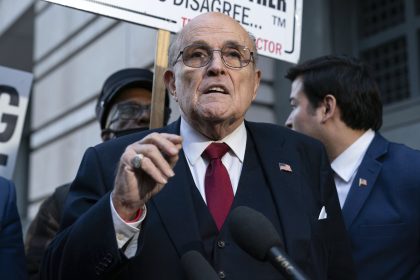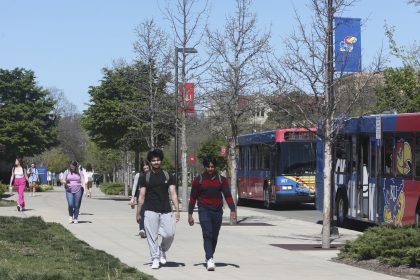Texas Professional Educators Rebuke Abbott’s Bill of Rights Proposal

AUSTIN, Texas — Professional educators in Texas were blindsided by Gov. Greg Abbott’s proposal for a Parental Bill of Rights, which intends to amend the state constitution to grant parents enhanced authority over their children’s education.
Abbott introduced his proposal earlier this month at a campaign event in Lewisville, Texas, as previously reported in The Well News. Texas’s Parental Bill of Rights would grant parents control over issues like whether a student should be forced to repeat a grade, expand parents’ access to course curriculum and strip teachers of their credentials for teaching material considered obscene or offensive.
But the proposal contains almost nothing that isn’t already outlined by the parental rights and responsibilities in chapter 26 of the Texas Education Code, Paul Tapp, managing attorney with the Association of Texas Professional Educators, told The Well News. Tapp said although Texas law already includes a “do not hire” list for teachers, it is unclear if providing pornographic materials to a minor would place them on it.
“No teacher is going to continue teaching who has provided pornography to a student, that just is not going to happen,” Tapp said. “As far as parents having rights to instructional materials, that is all over chapter 26 of the Texas Education Code. There is nothing that a parent does not have a right to see — the closest thing you get is that a parent does not have a right to see a test until it’s actually been administered, and for probably pretty obvious reasons.”
Similarly, parents in Texas do not have the right to see if an educator has filed a Child Protective Services report against the parent because of the possibility of retaliation. Tapp emphasized that almost nothing about the Parental Bill of Rights proposal actually grants parents new rights over their children’s education.
Tapp said he had not heard of Abbott’s proposal until he debuted it publicly and no one in the education community was asked to provide input on it. Considering what the education code already states, the proposal appears to only serve political purposes.
Additionally, Tapp said the ways in which the proposed amendment to the state constitution would actually alter state law is vague — and likely intentionally so. For years, multiple layers of curriculum review for educators and parents alike have been codified by state law and it’s unclear just how teachers are meant to interpret Abbott’s proposal.
“This is a political issue that was created for political effect, it really has very little relationship with reality,” Tapp told The Well News. “It is, first and foremost, red meat for the base. But to go along with that red meat to the base, there is definitely an intention to control thought.”
This is troubling for teachers who risk losing their pensions should they discuss widely debated issues of controversy that encompass public policy or social affairs in the classroom. On Dec. 2, a Texas law restricting the teaching of critical race theory principles in public schools went into effect, although the law never defines exactly what a “controversial issue” is, as TWN previously reported.
That law also requires at least one campus administrator and teacher from each school district to attend a civics training program that outlines how educators should teach about racism and racial issues at a cost of around $14.6 million annually. However, Tapp said this program has not yet been developed or instituted despite the looming punishments for teachers associated with failure to comply with the law.
Additionally, critical race theory as it is taught at levels of higher education was never present in Texas’s K-12 curriculum, further obscuring just what it was the law was intending to crack down on. Jennifer Mitchell, government relations director of the Association of Texas Professional Educators, said both the vagueness of Abbott’s rhetoric on the campaign trail and the ambiguity of the recently passed critical race theory laws are contributing to the confusion and anxiety felt by educators and parents.
“I think it’s already creating conflicts where there would not otherwise be a conflict,” Mitchell told The Well News. “If you go back to the debate about critical race theory, which took up a great amount of energy and time in our [latest] legislative session… there wasn’t ever any evidence put forward that critical race theory was being taught in any public schools.”
Despite this, parents bought into the talking points and began demanding that critical race theory principles be abolished from the schools’ curriculum. In a sense, fiction became fact as disputes broke out at school board meetings across the state.
While Abbott’s premise for instituting the Parental Bill of Rights is to grant parents control over their children’s education, Mitchell contended he has failed to support the local control of school districts trying to curb the spread of COVID-19 through precautionary measures. Abbott’s stance on keeping the government out of the affairs of local jurisdictions is inconsistent with his disapproval of schools instituting COVID-19 precautions and dictating what books can or cannot be in their classrooms or libraries, she said.
Public schools throughout Texas are currently dealing with increased staffing shortages and student absences because of the combined effects of the omicron variant’s spread and quarantine requirements. Although an influx of funds from federal COVID-19 relief legislation has helped schools deal with the shortages to some extent, the stresses presented by standardized testing requirements have already taken a toll on students and teachers alike.
“There’s always the pressure around standardized testing, which the governor and the commissioner of Education have not shown any interest in lifting,” Mitchell said. “So, that’s really an albatross, I think, for many of the teachers and students right now. They just want to focus on helping the kids get through this, and the mental health of students and staff is a huge issue that’s not getting enough attention.”
Mitchell continued, “I think it’s just a matter of prioritization. If you ask most teachers or parents, they’re more worried about the mental health of the students and getting them back on track academically as quickly as we can.”
Reece can be reached at [email protected].
























